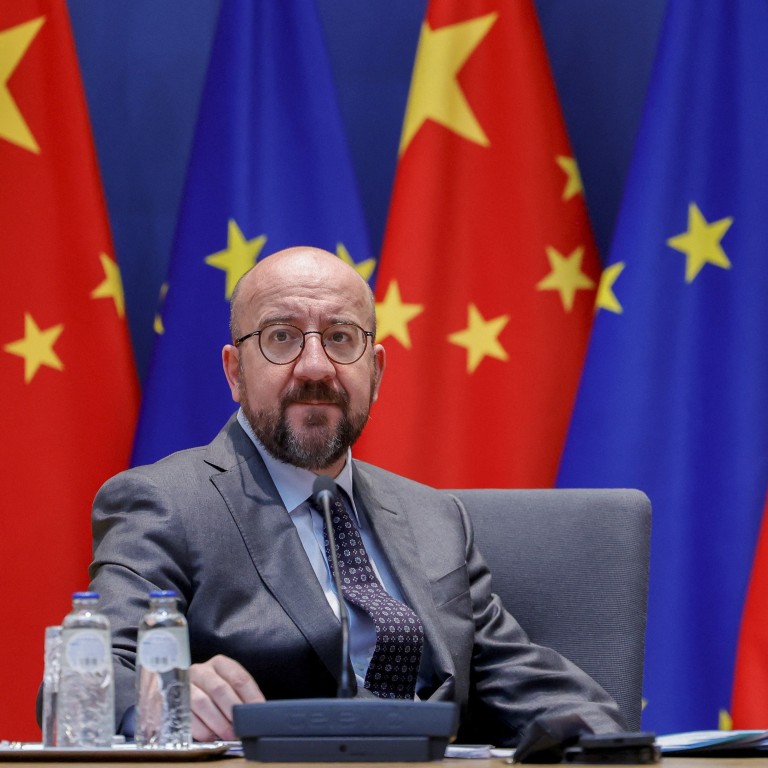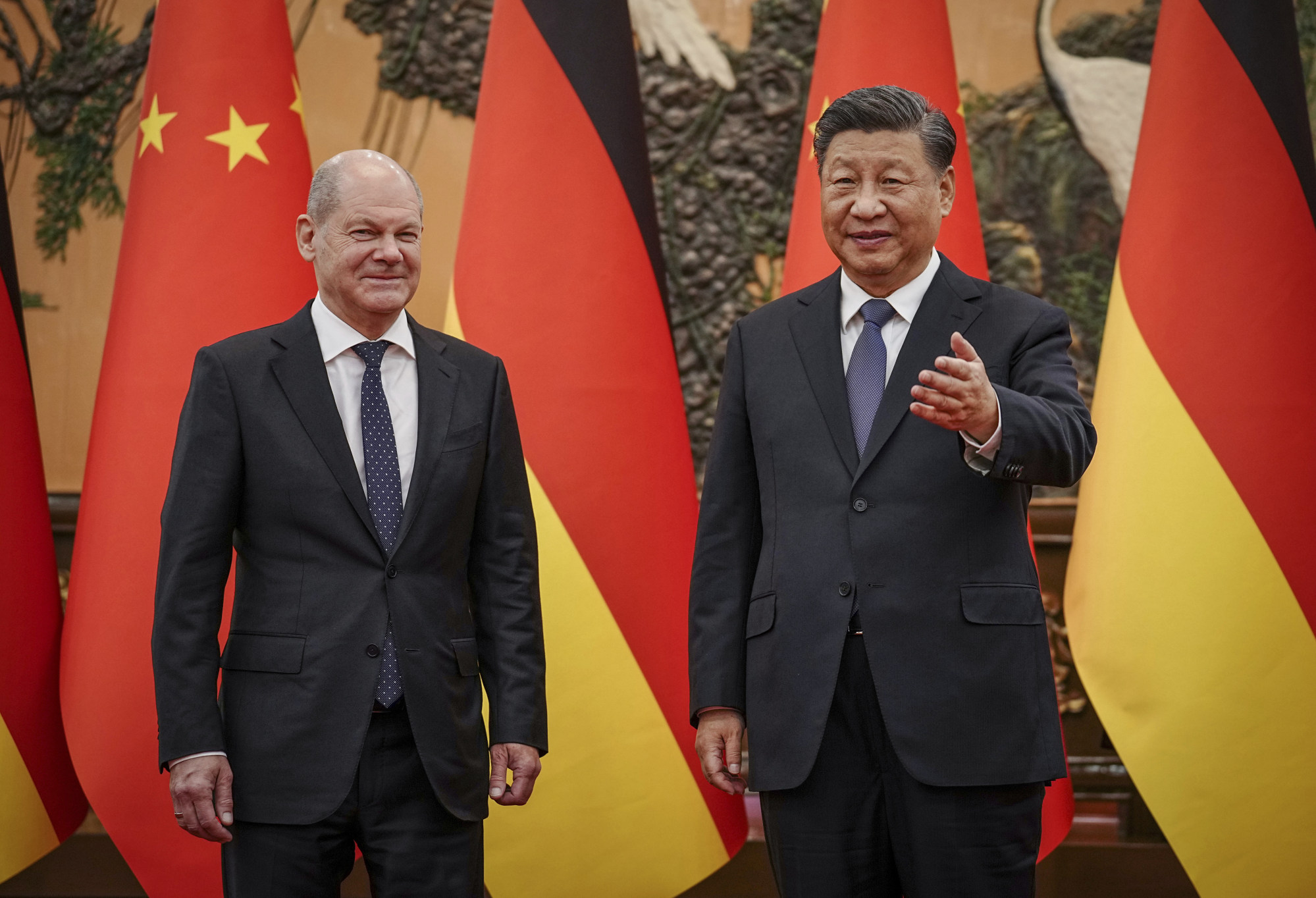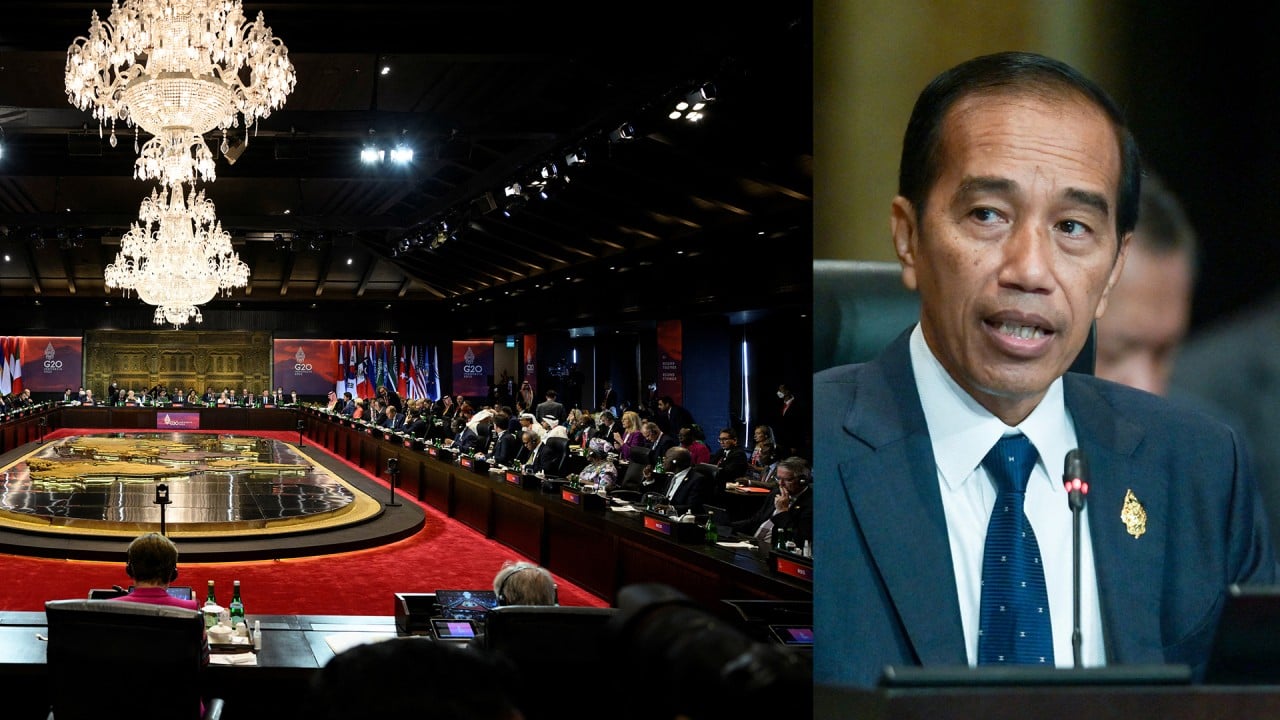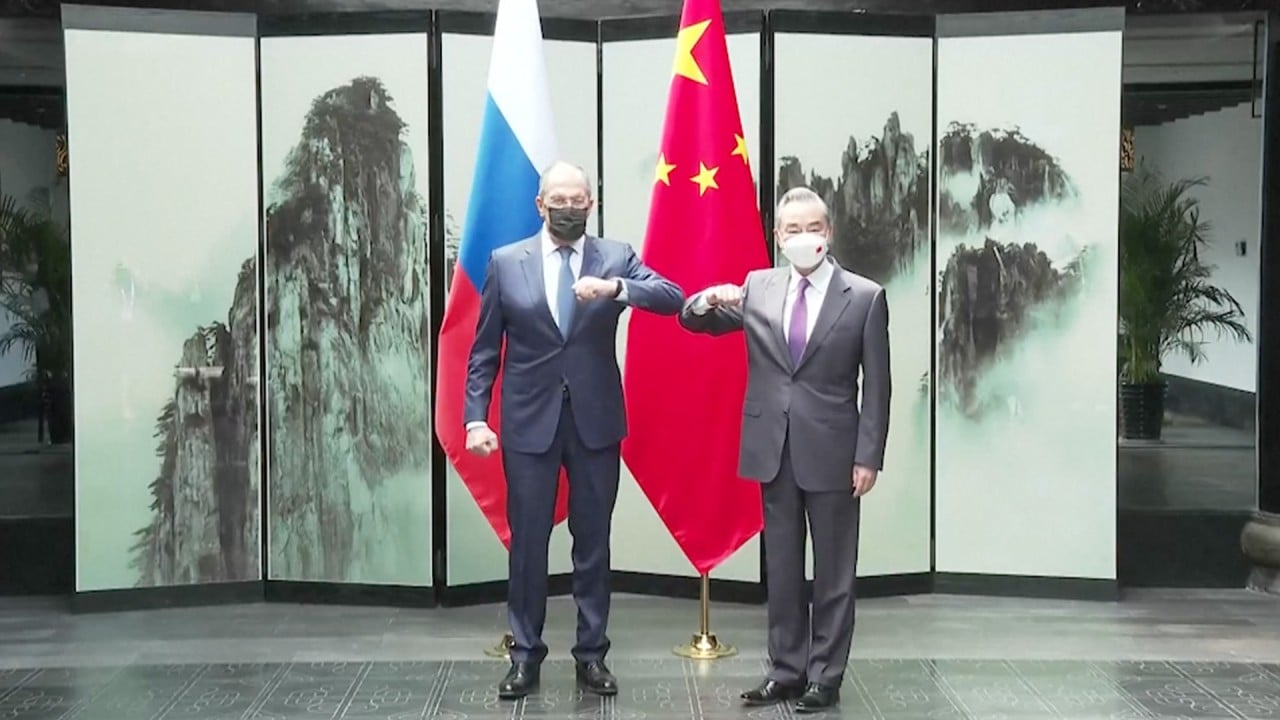
European Council chief to meet Chinese President Xi Jinping in Beijing as bloc seeks to recalibrate ties
- Visit by Charles Michel next week comes amid concerns the bloc is too dependent on the Chinese economy
- EU leaders aim to redefine relations with Beijing amid growing China-US rivalry
European Council President Charles Michel will travel to Beijing to meet Chinese President Xi Jinping next month, a trip that is expected to signal changes to how the European Union handles its ties with Beijing.
Michel later confirmed the visit on Twitter, writing: “We will discuss global challenges as well as subjects of common interest.”
When asked about the trip, Chinese foreign ministry spokeswoman Mao Ning told a daily press conference on Thursday that China would release information in due course.
The visit, first reported by the Financial Times, will be the first meeting between Xi and a European Council president in China since 2018.
A senior EU official said that while a meeting between Xi and Michel “had been foreseen” at this month’s G20 Summit in Bali, they only spoke briefly on the sidelines, where the Chinese leader said he would prefer for Michel to visit Beijing.
Michel will also meet with Premier Li Keqiang and Li Zhanshu, chairman of the Standing Committee of the National People’s Congress.
The purpose of the trip, the official said, was for Michel to find out “what has changed and what are the new parameters” in the EU’s relationship with China.
Xi slams tech restrictions, urges G20 members to be inclusive
Michel will raise China’s relationship with Russia with Xi, with the official saying that “every effort to resolve this war would be welcome and if one country has an influence on Russia, it is China”.
He will also tell Xi that, on Taiwan, “the use of force is not justified” and that “the EU has no interest in conflict”, the senior official said, along with potential cooperation on climate change, global health, debt reduction and food security.
China is facing greater scrutiny from the West over human rights issues, and its investments in critical infrastructure overseas have sparked national security concerns.
The Ukraine war has amplified European wariness towards China, as some see Beijing as siding with Russia for refusing to condemn Moscow over the invasion.
Chinese and European leaders have stepped up engagement in recent weeks. German Chancellor Olaf Scholz visited Beijing earlier this month, which saw the two nations agree to boost ties.

However, the trip generated a backlash in Germany amid criticism that Berlin is too economically dependent on China.
Macron, speaking at the Apec CEO forum in Bangkok, called the struggle for supremacy between China and the United States “a big risk and a big challenge”.
“We do not believe in hegemony, we do not believe in confrontation, we believe in stability,” he said.
China’s Xi urges return to ‘stable’ US ties in brief talks with Kamala Harris
At the G20 summit, Michel said that the EU needed to rebalance ties with China. Speaking in the European Parliament this week, EU foreign affairs chief Josep Borrell said the bloc will not follow the US’ toughest policies on China.
Borrell will travel to Washington next month for talks on China with his US counterparts.
Michel’s visit – his first to Beijing as European Council President – is expected to cover the full gamut of EU-China relations, from market access and human rights, to sanctions and climate cooperation.
As council president, his role is to represent the views of each of the EU’s 27 member states – a broad church when it comes to China, ranging from hawks such as Lithuania to doves in Hungary.
The visit will come days before Brussels finalises the renewal of sanctions on four Chinese government officials for their involvement in alleged human rights abuses in Xinjiang - charges denied by Beijing.
Earlier this month, a video address pre-recorded by Michel that called on Beijing to help end Russia’s war on Ukraine was pulled from the opening ceremony of a major trade expo in Shanghai without explanation.
“China has a role in using its influence to stop Russia’s brutal war ... through your so-called no-limits partnership with Russia. You, China, can help put an end to this,” Michel was planning to say.
The speech also referred to the EU’s desire to reduce its trade dependency on the world’s second-largest economy.
Political analysts pointed to a thawing in bilateral relations, but warned that European leaders should not expect to bring about change on China.
“The sudden cacophony between leaders who are all heading for Beijing, the virtues that we are trying to find again in the Chinese government - climatic role, influence on Moscow, partner ‘trusted and reliable’ ... on the contrary, show Xi Jinping that far from backing down, he can now choose to move forward,” wrote François Godement, adviser for Asia at the Institut Montaigne, a French think tank.
Mohammadbagher Forough, research fellow at the German Institute of Global and Area Studies, a Hamburg-based international relations think tank, said the trip is part of Europe’s efforts to define a strategically autonomous role for itself in this global context.
Germany’s ‘China City’ Duisburg cuts ties with tech giant Huawei
“All these meetings, including Michel and Scholz’s trips to Beijing, Xi’s meetings with EU leaders at the G20, as well as upcoming visits by France’s Macron and Italy’s [Prime Minister Georgia] Meloni and others, should be understood as the EU’s efforts to develop an independent strategic role in the world,” Forough said.
“There is also an element of national interest which will be followed by each of these national leaders.”
Additional reporting by Cyril Ip



